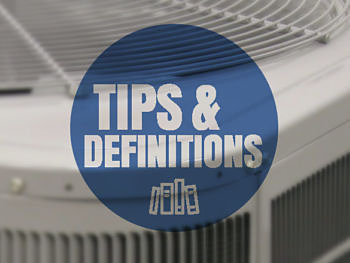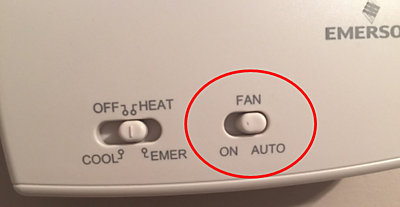The Indirect Link Between High Indoor Humidity and Cancer

June 21, 2017
Besides being uncomfortable and destroying your home, high indoor humidity can indirectly cause a variety of health problems—possibly including cancer.
“Hold up! What does humidity have to do with cancer?”
Here it is in a nutshell: High levels of relative humidity (RH) can allow volatile organic compound (VOC) to exist in greater concentrations in your home’s air. And some VOCs can put you at risk for health issues like eczema, central nervous system damage, and yes, even cancer.
In this article, we’ll cover the following topics:
- What are VOCs? And why can they lead to cancer?
- How high humidity affects VOCs
- 4 steps to eliminate high humidity in your home
Let’s start by taking a closer look at VOCs...
What are VOCs? And why can they lead to cancer?
VOCs are organic compounds that easily become vapors or gases. We breathe in these gases from everyday commodities like…
- Gasoline
- Paints
- Air fresheners
- Cleaning products
- Wood preservatives
Studies show that high concentrations of VOCs caused cancer in animals, and they’re suspected to cause cancer in humans, too. Additionally, high exposure to VOCs has been linked to damage related to your central nervous system, skin, liver and kidney.
So, you want to avoid VOCs, but if you have high indoor humidity, it actually makes them enter the air you breathe...
How high humidity affects VOCs
High levels of humidity affect VOCs in 2 major ways:
- High relative humidity reduces the effectiveness of carbon filters: To combat VOCs and other harmful pollutants, most homes use activated carbon filters to remove those contaminants from the air. However, high levels of relative humidity reduce the performance of these carbon filters, which can allow VOCs to exist in greater concentrations indoors.
- High relative humidity allows for higher concentration of VOCs: Like we mentioned earlier, research shows that high levels of relative humidity can allow VOC concentrations to be higher in your home. Additionally, other studies suggest that depending on the type of material, high levels of humidity can actually strengthen or decrease VOC emission from building materials.
“Uh oh. My home is pretty humid, what can I do to reduce humidity in my home?”
Read on...
4 steps to keep VOCs low and eliminate high humidity in your home
#1: Remove the source of VOCs (when possible)
Remove materials and products with VOCs from your home, or at least move them outdoors.
Of course, you can’t easily remove your flooring (wood preservatives) or walls (paints), but you can get rid of air fresheners and certain cleaning products.
Head over to epa.gov for a comprehensive list of household products with VOCs.
#2: Try DIY dehumidifying methods
You can try these dehumidifying methods right away…
- Ventilate: Turn on your exhaust fans in the bathroom (after you shower) and over the stove (while you cook).
- Check water sources: Repair any leaking pipes and keep watered plants outside because extra water increases humidity in your home.
- Add a desiccant: A desiccant is usually a silica gel that absorbs water from air. Just place it in a cloth bag to naturally eliminate indoor humidity.

Set your AC fan to AUTO instead of ON.
- Make sure your thermostat is set to AUTO, not ON: When your thermostat is set to AUTO, your AC can properly dehumidify your home’s warm air. Your AC can’t do that when it’s set to ON.
Learn more about AUTO vs. ON in our article, “Hate Humidity? Don’t Set Your Thermostat Like This.”
#3: Make sure your AC is the right size
If your AC only runs 10–15 minutes on a hot day, that means it’s probably too big for your home, which also means it’s not removing enough humidity from your home’s air.
Basically, your AC needs to run longer to remove moisture from your home’s warm air. If you have an oversized AC, since it’s not running long enough, your home will feel more humid.
Contact an air conditioning specialist to help you determine if your AC is the right size for your home.
Learn more about ACs and dehumidification in our blog article, “Why Is My Home So Humid? [FAQ].”
If your AC is too big, you have 2 options:
1. Replace your air conditioner: If your AC is older, this may be the most cost-effective option in the long run.
Curious about the cost? Read our article, “The Cost to Replace Your Central Air Conditioner in Florida.”
2. Purchase a dehumidifier: If your current AC is relatively new, then it may be more cost-effective to purchase a dehumidifier. Read the next section to learn more about dehumidifiers...
#4: Buy a dehumidifier
Dehumidifiers are an inexpensive and effective option to eliminate humidity from a room or your whole house.
For more information, read 2 of our articles about dehumidifiers:
- How to Buy the Best Dehumidifier for Your Florida Home
- Whole Home vs. Portable Dehumidifiers: Which is Better for Southwest Florida?
If you decide to buy a dehumidifier, contact an air quality professional to quote you a price on a dehumidifier installation.
Your first step:
Try steps #1 and #2 first. Then contact a professional for help on steps #3 and #4.
Need a dehumidifier or an AC inspection?
Contact Cool Today to schedule an appointment with one of our trusted technicians. We’re happy to answer any humidity questions you may have.
We’ve been serving Florida families since 1963.
Posted in: Tips